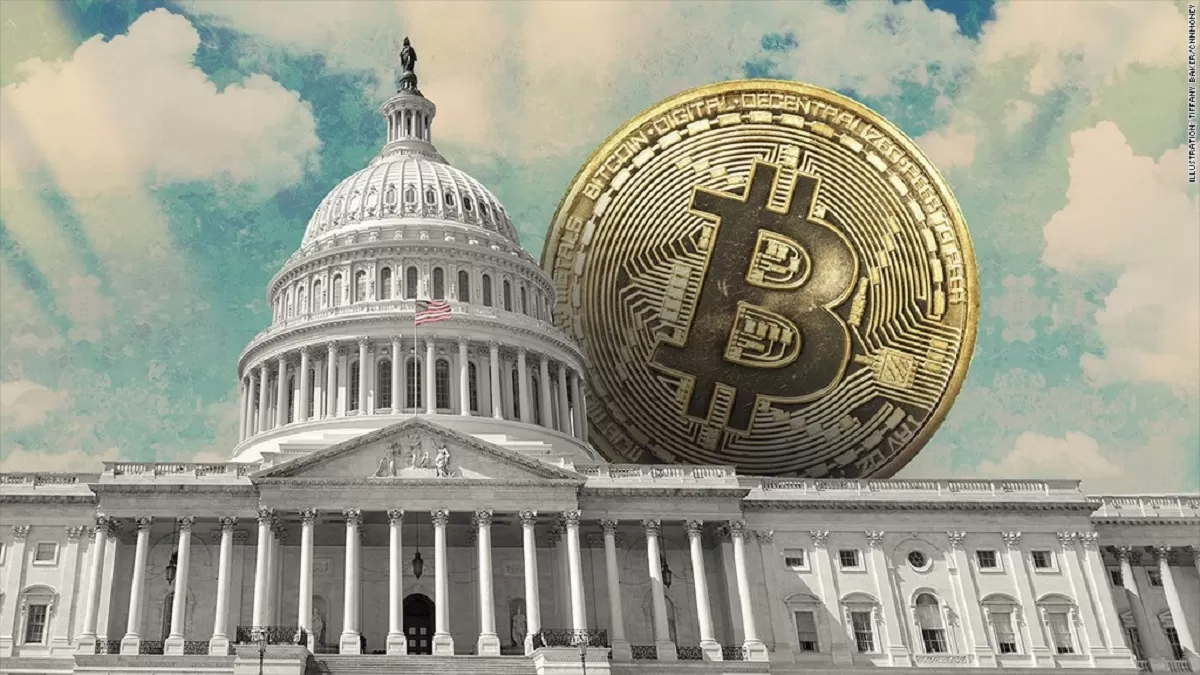US States Take Initial Steps to Create Bitcoin Reserves

US States Take Initial Steps: In a groundbreaking move, several US states are exploring the idea of creating Bitcoin reserves as part of their financial strategies. This initiative reflects the growing acceptance of cryptocurrencies in mainstream finance and government policy. Trump Launches New Tariff Move to Revolutionize Global Trade While the concept is still in its infancy, it signals a potential shift in how state governments manage their financial resources.
Why Bitcoin?
Bitcoin, often referred to as digital gold, has gained popularity due to its decentralized nature and potential as a hedge against inflation. Unlike traditional fiat currencies, Bitcoin operates on a blockchain, making it secure, transparent, and resistant to manipulation. For states looking to diversify their portfolios, Bitcoin offers an innovative way to safeguard assets against economic uncertainties.
States Leading the Charge

Some states, such as Texas and Wyoming, have already established themselves as crypto-friendly hubs. These states are not only promoting blockchain technology but are also considering the inclusion of Bitcoin in their financial reserves. Wyoming, for instance, has passed legislation to create a favorable regulatory environment for cryptocurrencies, making it a frontrunner in this space.
Meanwhile, Texas has seen significant investments in Bitcoin mining operations, thanks to its abundant energy resources and supportive policies. By incorporating Bitcoin into their reserves, these states aim to leverage their existing crypto infrastructure and expertise.
Benefits of Bitcoin Reserves
- Inflation Hedge: Bitcoin’s limited supply makes it an attractive option for combating inflation, a growing concern for many states.
- Portfolio Diversification: Adding Bitcoin to state reserves can reduce reliance on traditional assets like bonds and cash.
- Economic Growth: Embracing Bitcoin can attract blockchain-based businesses and innovation, boosting local economies.
Challenges and Concerns
While the idea of Bitcoin reserves is promising, it is not without challenges. The volatility of cryptocurrencies remains a significant concern. Bitcoin prices can fluctuate dramatically, posing risks to state budgets. Additionally, there are regulatory and legal hurdles to overcome, as federal guidelines on cryptocurrency adoption by states are still evolving.
Moreover, the environmental impact of Bitcoin mining has drawn criticism. States considering Bitcoin reserves must address sustainability concerns to align with broader environmental goals.
The Road Ahead
As US states take their first steps toward Bitcoin reserves, the success of this initiative will depend on careful planning and execution. Policymakers must strike a balance between innovation and risk management. Collaboration with industry experts and stakeholders will be crucial to navigating the complexities of cryptocurrency adoption.
This move also highlights the need for federal and state governments to collaborate to establish clear regulatory frameworks for cryptocurrencies. Such guidelines will provide the necessary confidence for states to integrate Bitcoin into their financial systems.
Conclusion
The exploration of Bitcoin reserves by US states marks a significant milestone in the evolution of digital currencies. While the journey is fraught with challenges, the potential benefits make it a compelling avenue for financial innovation. As this trend unfolds, it could pave the way US States Take Initial Steps for broader adoption of cryptocurrencies in public finance, reshaping the economic landscape for years to come.
[sp_easyaccordion id=”4224″]




